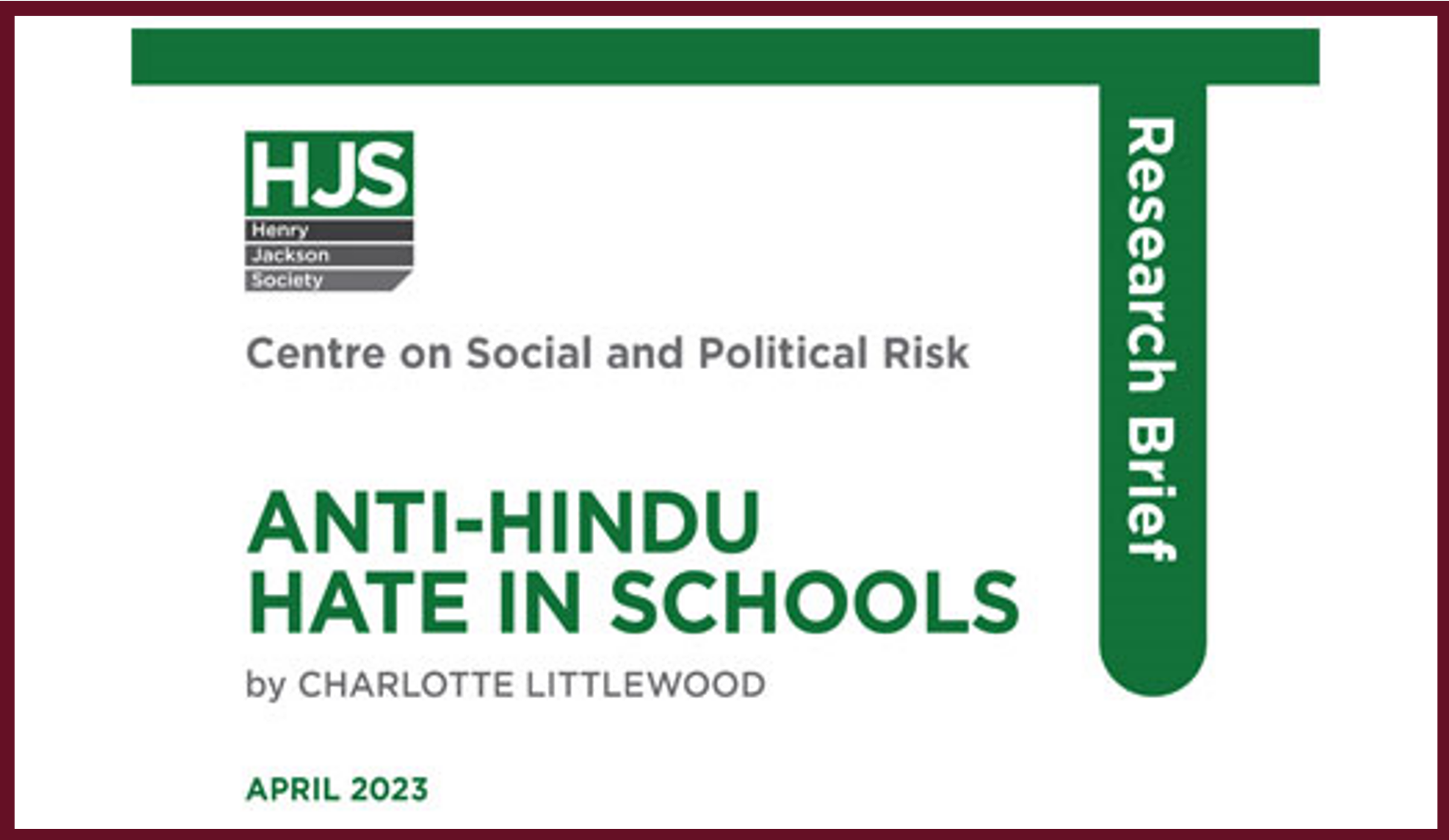A recent first-of-its-kind study looking into anti-Hindu hate in British schools [1] found widespread discrimination against Hindu pupils in the British education system. Sponsored by the Henry Jackson Society, a UK-based trans-Atlantic foreign policy and national security think tank, the study found that discrimination emanates not only from peers but also from how Hinduism is taught in British schools.
Key Findings
- A majority (51%) of the Hindu parents surveyed reported that their child had experienced anti-Hindu hate in schools.
- By contrast, less than 1% of schools with Indian pupils questioned by the researchers reported anti-Hindu-related incidents in the last five years.
- Many participants noted the quality of teaching on Hinduism as a source of discriminatory behavior. Concerns centered around Hinduism being taught through an Abrahamic faith lens, giving the wrong perception of “multiple Gods” and other key concepts.
- The report also highlights the concern that Hindu customs and festivals were not respected in some schools as they are for other religions.
- Only a small fraction (19%) of the parents surveyed thought schools were able to identify anti-Hindu behavior.
- The report also found that schools may tend to downplay faith-based bullying as ‘playground banter,’ thus ignoring the profound psychological impact of victimizing not only the individual but their entire family, heritage, and culture.
In his foreword to the report, Ben Everitt, a Member of the British Parliament, shared his insightful perspective on the impact of the anti-Hindu atmosphere in the school system on the fabric of British society. Relevant excerpts from his foreword are quoted here:
The findings in this report are damning and shed light on the varying themes and forms in which anti-Hindu discrimination materializes in the classroom. This nuanced, highly detailed approach highlights that anti-Hindu discrimination is, in fact, multifaceted. We see how this type of discrimination can take the form of anti-Hindu slurs, but also in how a problematic approach to teaching Hinduism may be feeding into prejudice and whether incidents of bullying and discrimination are being adequately dealt with by each individual school.
One of the most revealing findings in this report is the prevalence of certain slurs in the classroom and around school, which can only serve to alienate young Hindu people. Young Hindus are facing a range of prejudice from that which targets their religion to xenophobia; what is clear is that this type of discrimination is going under the radar, with incidents not being properly recorded or reported.
The incidents described can lead to increased alienation and can begin to erode community cohesion, undermining the faith in our education system’s ability to provide the best learning environment possible for all our young people. This cannot continue.
Beyond the damaging slurs that Hindu children are being subjected to in schools, it is also clear that we need to look at the standard of teaching surrounding Religious Education. If we want to make real, sustained, long-term progress in reducing discrimination towards those of minority faiths in our schools, then we need to make sure that young people are receiving the best possible education about the many faiths which are woven into the fabric of our diverse United Kingdom. Through an increased understanding and awareness of the different faiths present in our society, we can reduce ignorance, particularly within schools and in the classroom.
Overall, by looking into the complex nature of anti-Hindu hate within schools, we can better understand the next steps in tackling this form of discrimination and make our schools a more tolerant, safe, and healthy environment for Hindu children and many other children of minority faiths. Therefore, I join calls for a review of existing guidance and the need for new, more stringent reporting standards that deal with the range of hate incidents that are well-documented in this report.
Closing remarks…
The Henry Jackson Society must be given credit for addressing the prevalence of anti-Hindu discrimination in the British education system. That leaves only one question on our minds: When will America, the “Land of the Free,” recognize that it has exactly the same problem in its backyard?







